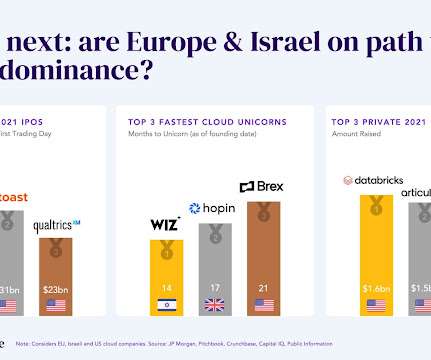Praying to the God of Valuation
Both Sides of the Table
DECEMBER 11, 2022
And then in the late 90’s money crept in, swept in to town by public markets, instant wealth and an absurd sky-rocketing of valuations based on no reasonable metrics. We had nascent revenues, ridiculous cost structures and unrealistic valuations. Until we weren’t. 2001–2007: THE BUILDING YEARS The dot com bubble had burst.




























Let's personalize your content